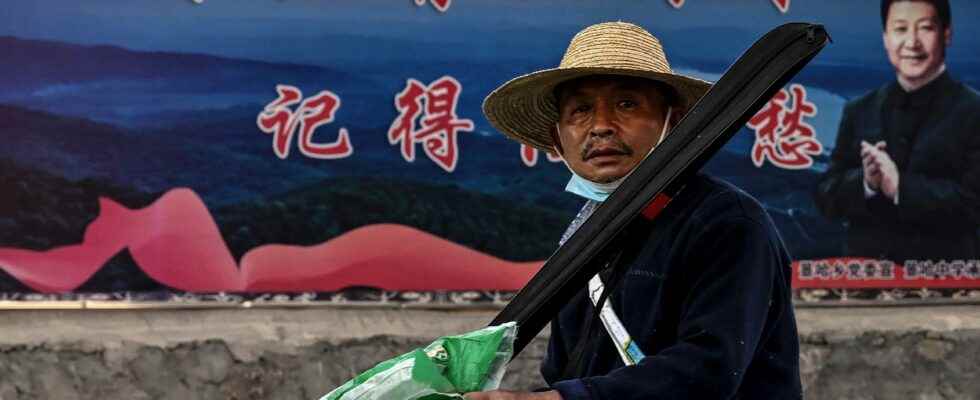On a cold and wet afternoon in February, hundreds of retirees, wearing down jackets, caps and often surgical masks, demonstrate in the cities of Wuhan and Dalian. On videos, we see them chanting slogans or singing The International, under heavy police surveillance.
The reason for their anger? These seniors are protesting against a reform of the local health insurance funds, which cuts their reimbursements. This “movement of white hair” comes three months after that of “white sheets” – brandished across the country to denounce health restrictions.
If daily life has normalized, the three years of “zero Covid” policy have left their mark. Massive screening campaigns, quarantine centers and repeated confinements have emptied the coffers of local governments, already faced with a rapidly aging population. They are now desperate to save money.
Guangdong province was the biggest spender last year, gobbling up 10 billion euros for epidemic prevention and control. Beijing has, meanwhile, burned 3.7 billion euros, more than its entire health budget. “The financial situation of local governments, whose debt continues to climb, is worrying, confirms Alicia Garcia Herrero, chief Asia-Pacific economist at Natixis. They have been weakened by the health crisis and are unable to increase their income with land sales, due to the slump in the real estate sector.”
Growth at half mast
“Covid zero” has also had a devastating effect on economic growth, which slowed to 3% in 2022, the lowest since 1976, which largely explains the abandonment of this policy in December. The end of the restrictions could result in a rebound of around 5.5% this year, according to Natixis. But the atmosphere is not one of euphoria. “China’s economic situation is no longer that of before the Covid, we will certainly have strong growth in 2023, but compared to a year 2022 which was weak”, nuances Alicia Garcia Herrero. “Consumption is slowly picking up, but we are still very far from the level of 2019, abounds Chen Zhiwu, professor at the University of Hong Kong. Households remain cautious, with wages increasing much less quickly than inflation. Youth unemployment, which reaches 20% among urban dwellers under 24, is another obstacle.
“The current rebound, driven by the New Year holidays, is not surprising, after three years of consumption at half mast. The question is whether it will be sustainable, questions the economist François Chimits, of the institute Merics. For that it would have to be mainly driven by a sustained increase in purchasing power. But the budgetary constraints of local governments, which prevent the financing of a social system worthy of the name, seriously complicate this rebalancing.”
The international context is also weighing, as is fragile external demand. “We sense uncertainty among private investors, both Chinese and foreign, in a period of geopolitical tensions and technological rivalry between Washington and Beijing, continues Alicia Garcia Herrero. All of this is aggravated by President Xi Jinping’s incessant changes in terms of economic policy.”
But since the reopening of the borders in early January, China has aroused renewed interest. The bosses of Volkswagen and Kering have already made the trip. Those of Apple, Pfizer and Mercedes are expected in March, and a large delegation of business leaders should accompany Emmanuel Macron during his visit, scheduled for early April. “Deprived of contact with their Chinese subsidiaries for three years, multinationals need to regain the temperature of the market”, specifies Karel Eloot, president of the Benelux Chamber of Commerce in Shanghai.
Two-thirds of French companies anticipate an increase in their turnover in the country this year, according to a recent survey. “The fact remains that since the peak of 2008, we have witnessed a continuous decline in the market share of foreign-invested companies in China. The Covid has not helped…” puts Karel Eloot into perspective. Nor is the growing weight granted by Xi Jinping to the State and the Communist Party.
